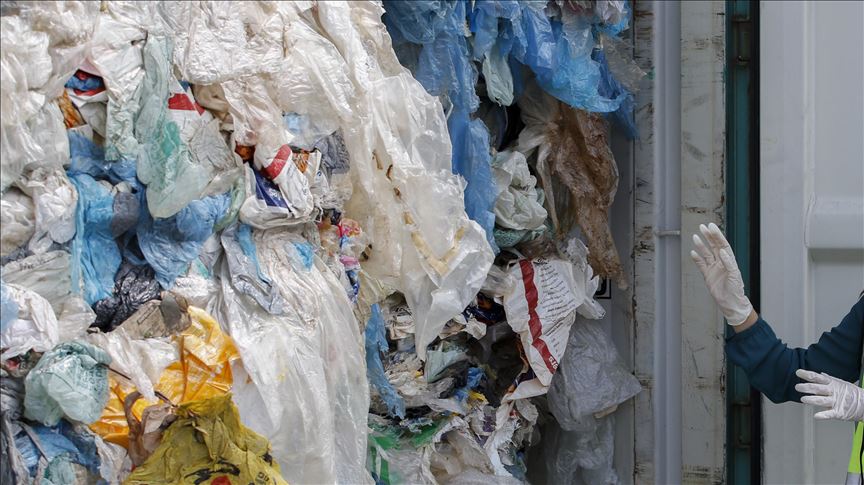Canadian firm turns non-recyclable plastics to fuel
Pilot project helps divert plastic from landfills
 FILE PHOTO
FILE PHOTO
TRENTON, Canada
A Canadian firm has found a way to convert ubiquitous plastic headed for landfills into diesel fuel and gasoline, according to a report Tuesday.
The technology is already being used by the Sparta Group, the firm behind a pilot project known as Phoenix, to fuel the company’s truck fleet.
“Five tonnes of plastic can be converted into about [1,057 gallons] 4,000 litres,” said John O’Bireck, president of the Sparta Group located in the Town of Whitby, just outside of Toronto. “And 4,000 liters can drive our whole fleet of 10 vehicles back and forth every day running 16 hours a day.”
The trucks are used to transport industrial waste.
The technology uses high temperatures that cause plastic to decompose, a process known as pyrolysis. The plastics is cut into small pieces and goes in to an airtight vessel and heated without oxygen, so it does not actually burn as it breaks down, said O’Bireck. The plastics used are those that cannot be recycled and that otherwise would end up in landfill.
“If you take plastic as it stands, it’s going to go in the ground and it’s going to sit there for a thousand years,” O'Bireck said.
“In industry, we could take it, convert the plastic and feed it back into the plant to be used (as fuel) by the plant,” he said.
“By adding this technology, we are converting it so that we give it (plastic) one more chance to go back out.”
In the province of Nova Scotia, another project uses similar technology to convert plastic into fuel. Sustain Technologies Inc. will use up to 50,000 tonnes of municipal garbage per year when fully up and running.
Sheila McGrory, an official in Whitby, is delighted the pilot project is located in the town.
“They seem to be attracting a lot of international attention, people from various parts of the world coming to see the plant in operation," she said. “It’s great technology. It’s very important for the future of the planet.”
Keith Brooks, program director of the advocacy organization Environmental Defence, said the process still uses plastic to create fossil fuels and there is a better solution.
“We don’t think there should be any non-recyclable plastic,” he said.
Anadolu Agency website contains only a portion of the news stories offered to subscribers in the AA News Broadcasting System (HAS), and in summarized form. Please contact us for subscription options.


